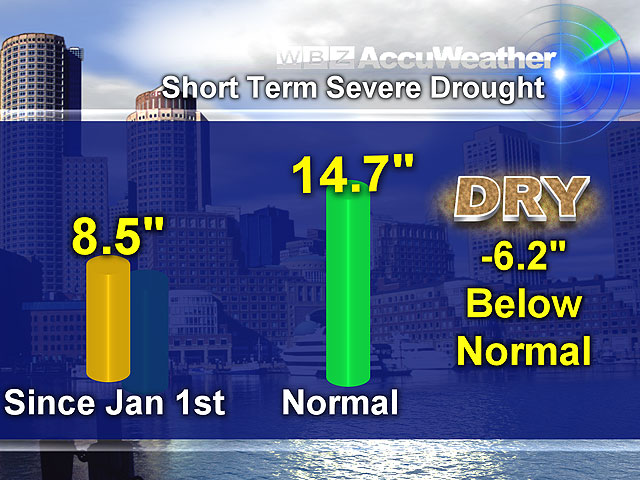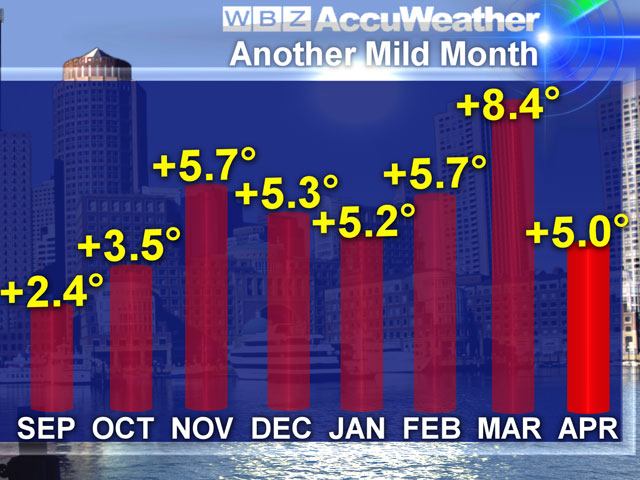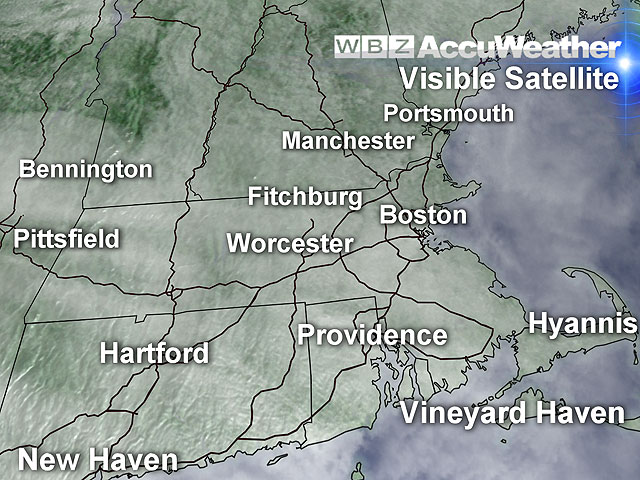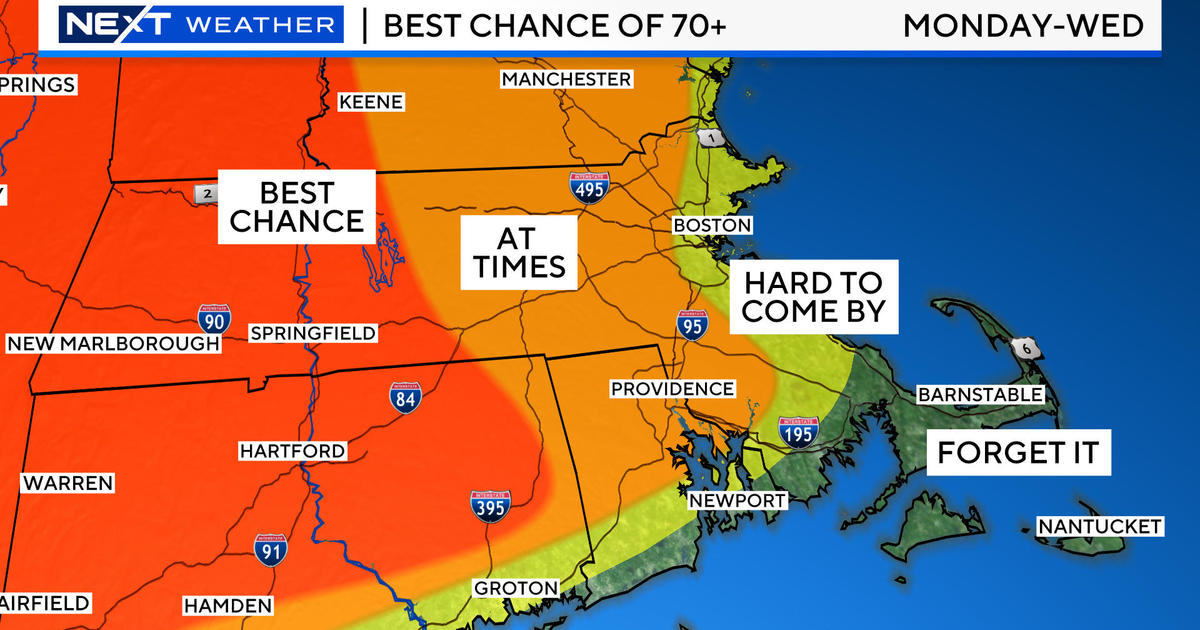No Sun Again Until Sunday?
BOSTON (CBS) - It seems that we have finally found our typical, New England spring weather.
You can usually set your watch by it.
Check: Current Conditions | Weather Map Center | Interactive Radar
Each spring inevitably we have a stretch of weather, sometimes lasting days or even weeks, with persistent, chilly onshore winds, low clouds, and periods of rain or drizzle.
Just when you thought you had made it through another long winter and are ready to put on the shorts and get some sun, we get a harsh reminder that our neighbor, the Atlantic Ocean, remains very cold in early spring and that can have a big influence.
But, this year Mother Nature may have forgotten to wind her watch.
We had an amazingly warm March followed by an April which averaged 5 degrees above normal per day, making it the 2nd warmest on record.
We even had a stretch of 80's, peaking on Marathon Monday with a record high of 87 grueling degrees for runners.
It seemed that we had skipped right over spring and vaulted head first into summer. That, of course, is simply not the case.
Our summer preview was just that - a sneak peek for a show that won't be seen around here for several more weeks.
So what should we expect heading into May?
We have all heard the phrase April showers bring May flowers. Well, this year may be the exception to that rule.
The flowers actually came out in earnest in April and the showers are finally arriving along with the month of May.
So why now?
Well, the easy answer would be we were due. I mean how long did you think we could sustain this mild, dry weather?
Our winter and early spring seasons were more like ones they see in Washington D.C. - very little snow, trees and flowers blooming in March and April.
I mean even the biggest global warming believers would have to admit that this was a bit too quick of a change.
In actuality, the abnormally mild stretch we had was really due to two main meteorological factors, La Nina and the NAO.
La Nina, a cooling of the ocean waters in the central Pacific, is thought to have been a major cause of many of our extremes over the past year or so - the tornadoes, flooding rains, mild temperatures and spring drought.
It truly has a global effect on weather and is now weakening and disappearing.
Experts are predicting either a weak El Nino by this summer or perhaps what they call a "La Nada", essentially neutral conditions.
The second factor, something call the North Atlantic Oscillation (NAO) is a measure of how much blocking exists in the atmosphere in the northern latitudes up near Greenland.
When we have a positive NAO, there is very little blocking and weather systems tend to keep moving across the northeast U.S. and we are susceptible to periods of warmth (much like we had all winter).
When it goes negative, weather systems tend to move slower, colder air is forced southward from Canada and generally the weather in New England suffers (this was the case in the winter of 2010-2011, otherwise known as Snowmageddon.)
There are now signs that the NAO is about to go negative in a big way.
So what does this all mean?
The bottom line is our streak of 10 straight months of above normal temperatures is in serious jeopardy. The party may be over.
The official forecast for the next 1-2 weeks is for near normal to below normal temperatures.
And more immediately, over the next few days, there is little hope of much sunshine or warmth, especially along the coast where the chilly Atlantic will rule.
In fact, most folks will not see the sun in full until Sunday afternoon, nearly a week of gray and gloom.
If you are looking for a silver lining, we are putting some serious dents in our drought and should continue to do so over the next week or two.
Nature always has a way of balancing out and it looks like the month of May will be payback time.
You can follow Terry on Twitter at @TerryWBZ.



